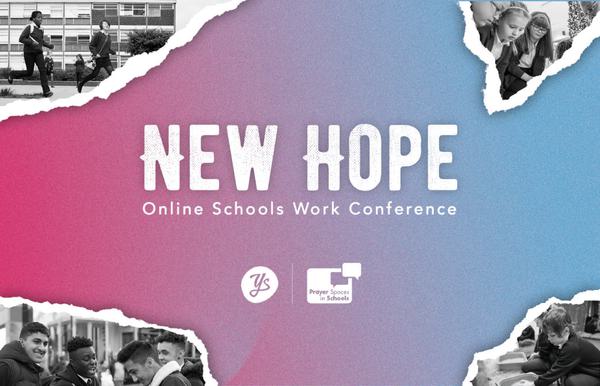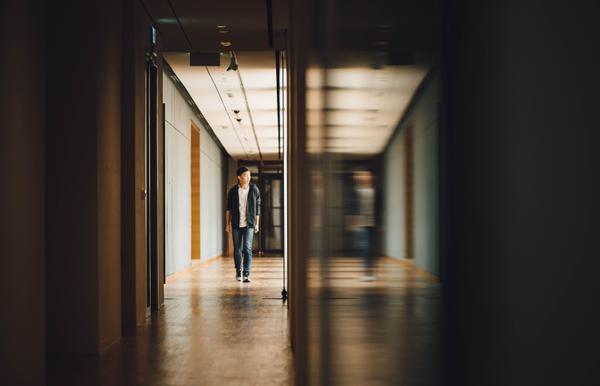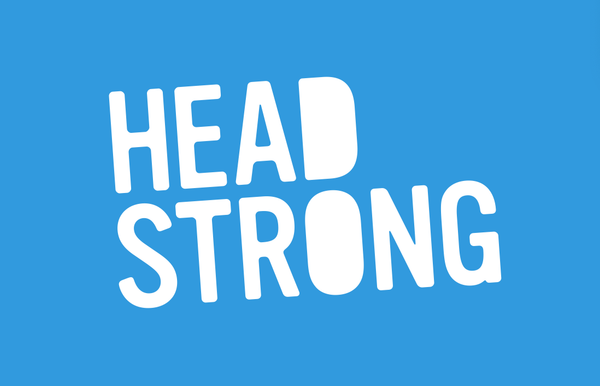Young people face immense challenges as they return to schools. What can schools workers do to support them in this strange new context?
My first school visit this academic year was one that I won’t forget in a hurry. From having my temperature taken at reception, to needing to wear a face mask when walking the one way system through the corridors, to passing through doors standing wide open for ventilation. It was definitely a new experience.
Although I expected that there would be guidelines and restrictions in place due to the continued concerns around COVID-19, seeing them with my own eyes gave me a greater understanding of how challenging the experience of returning to school at this time is and will be for young people. Even though the changes that have been made for the sake of safety will not be exactly the same in each school, the nature of these changes will be similar and will likely result in young people needing to manage a huge array of emotions. And as a result, any support we are able to provide as youth and schools workers will be invaluable.
During my visit, I observed three significant changes that young people will need to adjust to as they return to school.
1. A strange & familiar space
Not every school will have implemented one way systems, moved classroom desks further apart, restricted year groups to certain parts of the school, have windows and doors constantly open, have staggered break and lunch times, have issued equipment that young people cannot share with anyone else, and be strictly enforcing social distancing and face mask wearing. But all schools will have made some physical changes to the way the environment operates in order to restrict the spread of the coronavirus as much as possible. These changes will not only require a lot of getting used to for young people, but they may also invoke much anxiety. Having returned to something they view as such a ‘normal’ part of their routine, but the reality of it being so different to what they’re used to, will be incredibly challenging for some.
On top of this there may be uncertainty around whether more changes are imminent, or what will happen if the country goes into another lockdown. And there will also be the physical discomfort of wearing a mask or having a draught blow through all the windows and doors of the classroom when they are trying to work. These precautions may be necessary, but that doesn’t mean they are comfortable, and we need to remember that young people are being expected to learn and perform academically in this environment, which isn’t an easy task.
2. Limited learning
The majority of young people will have been away from school for six months, and during that time will have become used to a very different way of learning. For some this will have meant being really engaged in online and self-led education, whereas for others it will have meant doing very little. Whichever extreme young people have found themselves in (or even if they have been somewhere in the middle), going back to a structured, classroom based style of learning will be a shock. There may be many young people who have fallen behind because they did not have the means at home for online learning or because they struggled with motivating and disciplining themselves to stay on top of their school work. This may result in feelings of shame, guilt, or inadequacy, especially for those who may feel that they are significantly behind their peers.
At the other end of the spectrum there will be those who thrived during lockdown, and engaged really well with self-led learning. For these young people, readjusting to a stricter learning process may be very challenging, and could lead to a great deal of frustration. It is important that we as youth and schools workers are also aware of this when we are developing content and resources for any support we may be offering to schools, as this could affect how young people engage with what we are offering.
3. Distanced relationships
Although all relationships have been impacted by the restrictions that have been in place over the past six months, the fact that young people have been allowed to return to the ‘normal’ routine of school will likely have made many of them feel that some of their relationships will now return to ‘normal’ too. Being able to see friends again, many of whom they may not have been able to see in person for a long time, will be incredibly exciting, and so the fact that social distancing and bubbles may have been implemented by the school will be a disappointment. Not being able to have lunch breaks with friends in other year groups, having to wear masks in communal areas, and even the fact that there may be restrictions to group work during lesson time, could add to some young people’s feelings of loneliness and isolation, rather than easing them.
Relationships with teachers and other school staff will also look different as masks and face shields may be used during interactions and social distancing will be in place, and this could make emotional and academic support being offered strained and difficult for young people to engage with. I know that many school staff will work incredibly hard to try and overcome these obstacles, but it still may be that further support is necessary, and this is where we as youth and schools workers can play a crucial role.
Although these challenges exist and may make us feel unsure about how to support young people within them (especially with many schools restricting access from external visitors), we know that we worship a God who is present amid those struggles and can bring hope. In order to encourage you in this and help you feel more equipped to handle these challenges (and any others that may arise), we would love to invite you to attend New Hope, our FREE online schools work conference with Prayer Spaces in Schools. Find out more about it here.
We pray that as we seek the God of hope at the beginning of this new, very unusual, academic year, we will feel His peace amongst the challenges and feel able to share this with the young people we work with.










